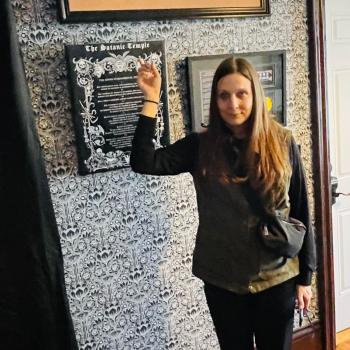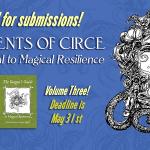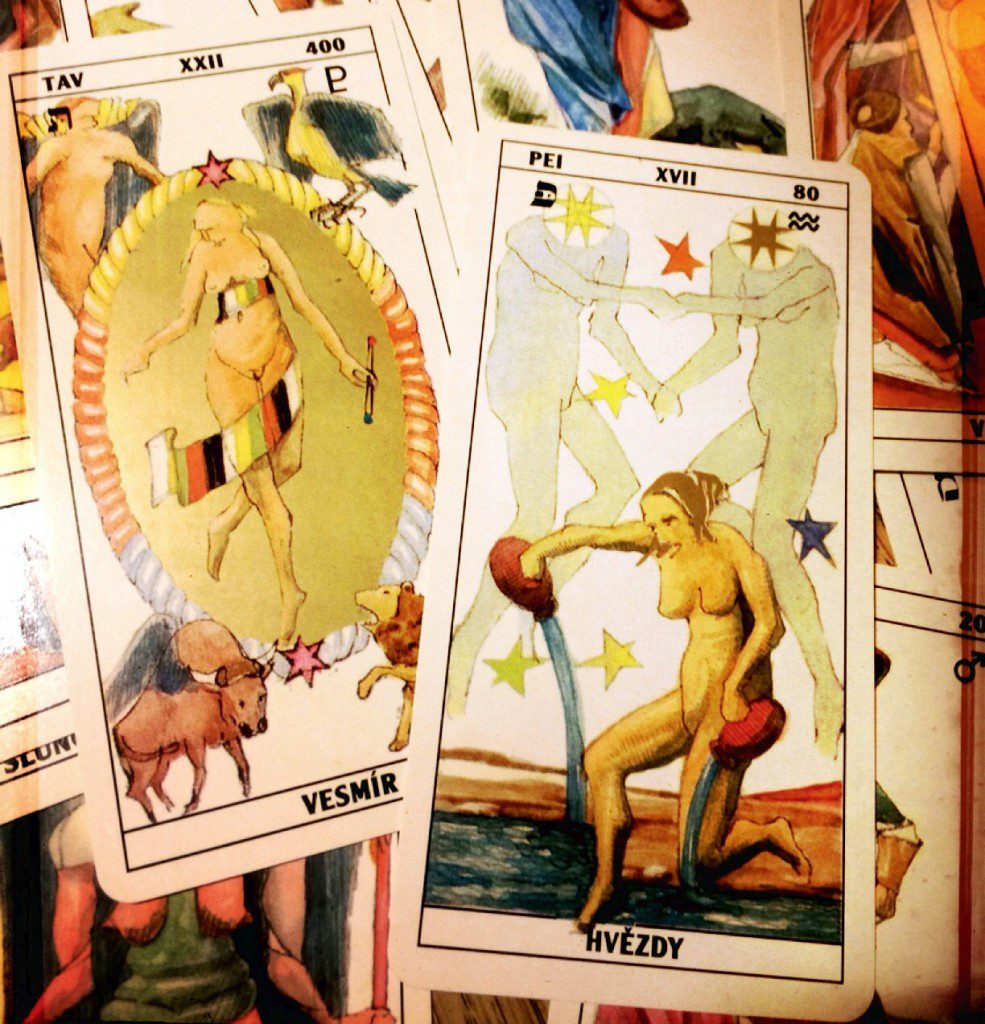
These days there’s strong emphasis in the Pagan community on the importance of drawing on local spirits and ancestors, partly also in response to the debates on cultural appropriations and its consequences. Fair enough.
But, when we talk about myths, cosmologies, traditions, and systems of correspondences, such as for instance, this tarot card goes with that Hebrew glyph, or this plant goes with that star, what we’re actually talking about is a refined understanding of local power to the extent that foreign inspiration infuses it, or opens the gate to what is right under our noses, but cannot see.
Norse Gods and Vampires? Get real.
I’m suspicions of all who say: ‘Don’t waste your time with Norse mythology if you come from Romania, as that is not your source to power even though you now live in Denmark’, thus advocating focusing on my own bloodline and whatever else we assume separates us from one another, you know, things like race, age, class, and gender.
Scholars of mythology, however, have long since emphasized the opposite, demonstrating also why, for example, in my case, I can have a much better appreciation of Transylvanian vampires populating the place I was born, not only through local study, but rather, especially through diving into such unlike topics as demons according to Tibetan Buddhism of the Vajrayana school.
It may well be that advocates of the ‘pure’ think that such crossings merely disclose foolishness and frivolity, but the way I see it is that what we call our local gods are in fact always other people’s stories. And by ‘other’ people I mean exactly that, a people whose histories and myths are deeply steeped into something that I, as a Danish/Romanian person, have no clue about. In other words, my discovery of a bloodthirsty lineage that may as well run through my veins can only happen in this cluelessness, in the stories that other people’s myths tell.
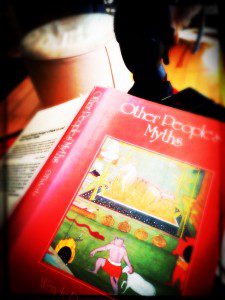
Let me give an example. Influential Sanskrit scholar and reputed professor of history of religion, Wendy Doniger, advances the claim that our local treasures can only be discovered in other people’s myths. Our sense of self can only be discovered in the lies that tell the truth – her definition of a myth – formulated by people who are completely ‘Other’ in relation to our perception of ourselves. So it is not our local folks’ opinions that counts, about what we should do, and what we should focus on in our cultures, but rather, other people’s lies that tell our local truth – which a myth always is and does.
In her marvelous book, Other People’s Myths (1988), Doniger has a chapter that begins with telling a famous story about a Rabbi from Cracow. I paraphrase it here in my own voice.
In this story, Rabbi Eisik son of Jekel has a dream. He is told to go to Prague and look under the famous bridge in the city for a treasure. He doesn’t listen the first time around, but when he has the same recurrent dream three times in a row, he decides to listen. He goes to Prague and finds the bridge. The bridge is guarded by officers. What to do? While pondering and walking about, one of the officers approaches him to ask him if he lost anything. The Rabbi decides to come clean and tell him what the actual reason is for his roaming about. To his surprise, the officer says while also laughing his wits out: ‘Old man, you came all this way out here because you had a dream? How stupid is that? Let me tell you something. I also had a dream. In this dream, I was instructed to go to Cracow and find this Rabbi Eisik, son of Jekel. In his house, behind a dusty stove, I was to find a treasure. Can you imagine that? And how stupid would that be of me to go on this pilgrimage and end up knocking on every Jew’s door in the Ghetto to find this Rabbi, when half of the Jews there is all called Eisik, and the other half is called Jekel?’ Rabbi Eisik said nothing but took note. He went home and looked behind his dusty stove. Sure enough he found a treasure that helped him live happily ever after.
At this point in the book, Doniger brings in the Indologist Heinrich Zimmer, who has this to say on this Hasidic tale:
“The real treasure . . . is never far away; it lies buried in the innermost recess of our own home; that is to say, our own being . . . but there is the odd and persistent fact . . . that the one who reveals to us the meaning of our cryptic inner message must be a stranger, of another creed and a foreign race.” (in Doniger, 1988: 138).
Other People’s Heads
What I like about this story, and Doniger’s insistence that we can use other people’s myths to learn about our own local gods is the fact that it reminds me of what I do as a fortuneteller. I’m always in other people’s myths, in other people’s heads.
From within their stories I learn to ‘read’ predicaments, solutions, and the power of swerving. I’m not afraid of cultural appropriation. I appropriate grand style every time I get the chance. For it is always within this very appropriation that I get to find my own local treasures.
The condition, however, is that we must take other people’s myths as face value and without judgment. This requires trust and courage. In Denmark there are many Italian restaurants. Meanwhile not a single one of those has any clue as to what Italian food really is, or that there’s a major difference between spaghetti cooked the Sicilian way and spaghetti cooked the Siena way. The reason for this misunderstanding is a deep fear that the Danish restaurant owners have: They think that if they won’t adjust the Italian cooking to some supposedly Danish-Italian-oriented palate, they will have no customers. So ignorance prevails and no one learns anything. You will eat, for sure, but your experience won’t be mythological.
When I read the cards, I want the other’s story such as it is. I want the treasures that are buried in that story to be all mine, to tell me something about myself that I don’t know. I don’t want adjusted myths. My own advice, if I have one to offer, is likewise an attempt to make the other discover her treasures in my tale. That’s what cultural appropriation is all about.
While Doniger’s book doesn’t state it, the message between her lines is clear: Whatever you do, when in other people’s myths, don’t be a dick.
As my Czech cards also suggest it here, in the bottom row, The Devil, Force, Death: Liberate yourself from the obsessions with what’s yours, from what you try to force on others, and focus on what you can harvest from all the dead, not just your local mortals.
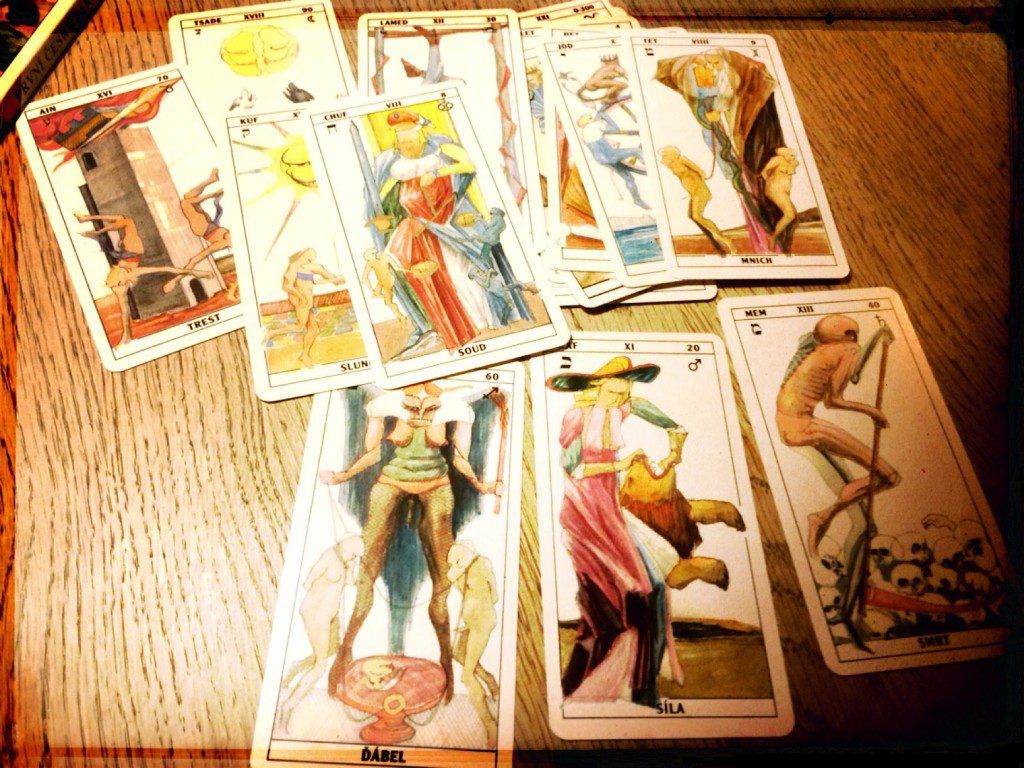
The ‘dust to dust dictum’ is not reserved for anyone in particular, but it’s a reminder that there’s shared ground between us, and that our treasures are to be found in another person’s house. When Death calls on us all, it’s not sure that the demons you fear the most are not your best friends already, your psychopomps. Honor your local gods, but don’t forget that the real treasure is with the God you least expect to hear from. Heed attention, and listen to your dreams. They are more honest than you.
♦
Reference: Doniger, Wendy (1988). Other People’s Myths. New York: MacMillan Publishing Company.
♠
More of this, and other cartomantic activities? Stay in the loop.

Patheos Pagan on Facebook.

the Agora on Facebook
The Cartomancer is published bi-monthly on the second and fourth Wednesday here on the Agora. Subscribe via RSS or e-mail!
Please use the links to the right to keep on top of activities here on the Agora as well as across the entire Patheos Pagan channel.





